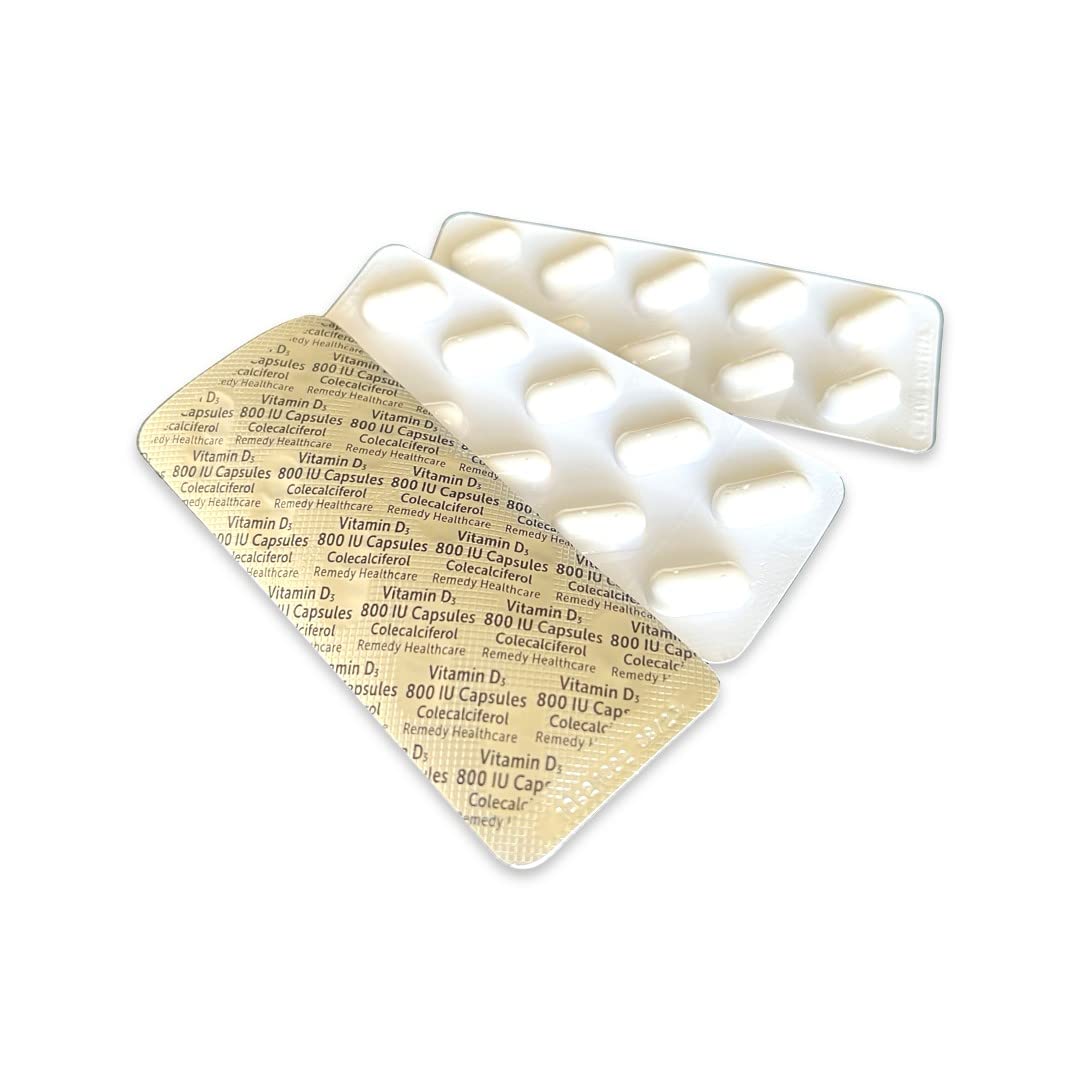



More Details
Colecalciferol 800IU Capsules Vitamin D helps regulate the amount of calcium and phosphate in the body.These nutrients are needed to help keep bones, teeth and muscles healthy. In some cases a a lack of vitamin D can lead to bone deformities such as rickets in children, and bone pain caused by a condition called osteomalacia in adults. Understanding the different measurements A microgram is 1,000 times smaller than a milligram (mg). The word microgram can also be displayed using the Greek symbol μ followed by the letter g (μg). On the internet and in most retails stores an amount of vitamin D is expressed as International Units (IU).
1 microgram of vitamin D is equal to 40 IU. This would mean that 10 micrograms of vitamin D is equal to 400 IU. How much vitamin D do I need? Babies up to the age of 1 year need 8.5 to 10 micrograms (340IU to 400IU) of vitamin D a day.
Children from the age of 1 year and adults need 10 micrograms (400IU) of vitamin D a day. This includes pregnant and breastfeeding women, and people at risk of vitamin D deficiency. Advice for adults and children over 4 years old
During the autumn and winter, you need to get vitamin D from your diet because the sun is not strong enough for the body to make vitamin D. But since it's difficult for people to get enough vitamin D from food alone, everyone (including pregnant and breastfeeding women) should consider taking a daily supplement containing 10 micrograms (400IU) of vitamin D during the autumn and winter. What happens if I take too much vitamin D? Taking too many vitamin D supplements over a long period of time can cause too much calcium to build up in the body.
If you choose to take vitamin D supplements, 10 micrograms (400IU) a day will be enough for most people.
Some people have medical conditions that mean they may not be able to safely take as much. If in doubt, you should consult your doctor.
More Info
- Manufacture: Remedy
- Brand: Remedy
- Size: 30 count (Pack of 1)









